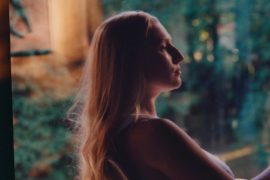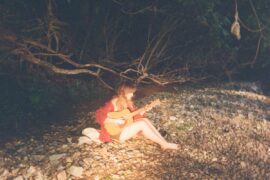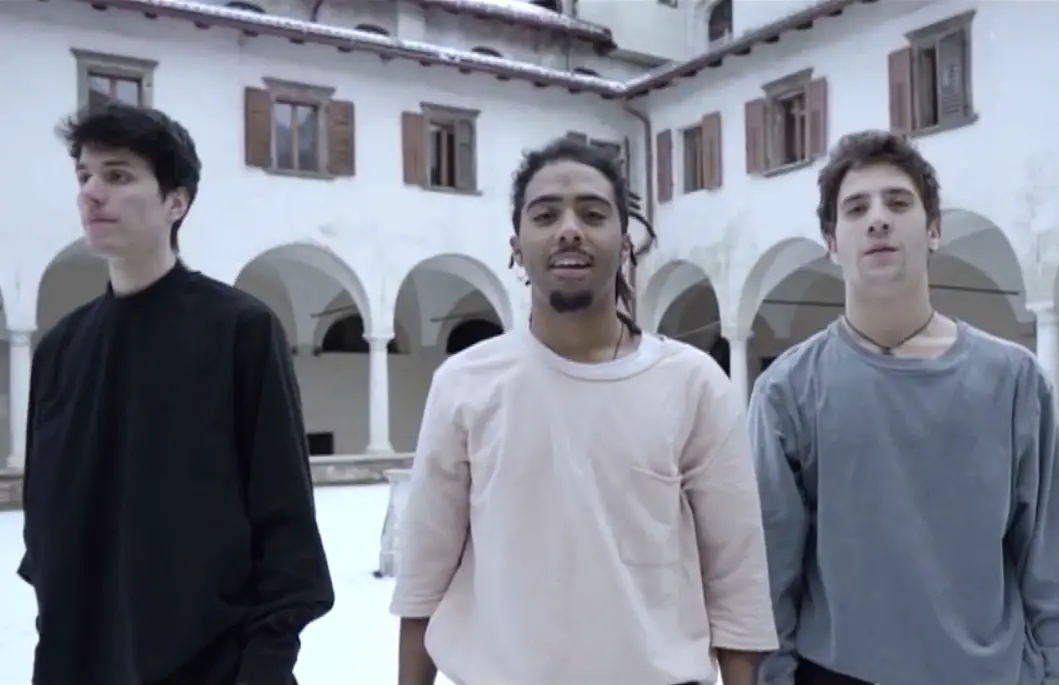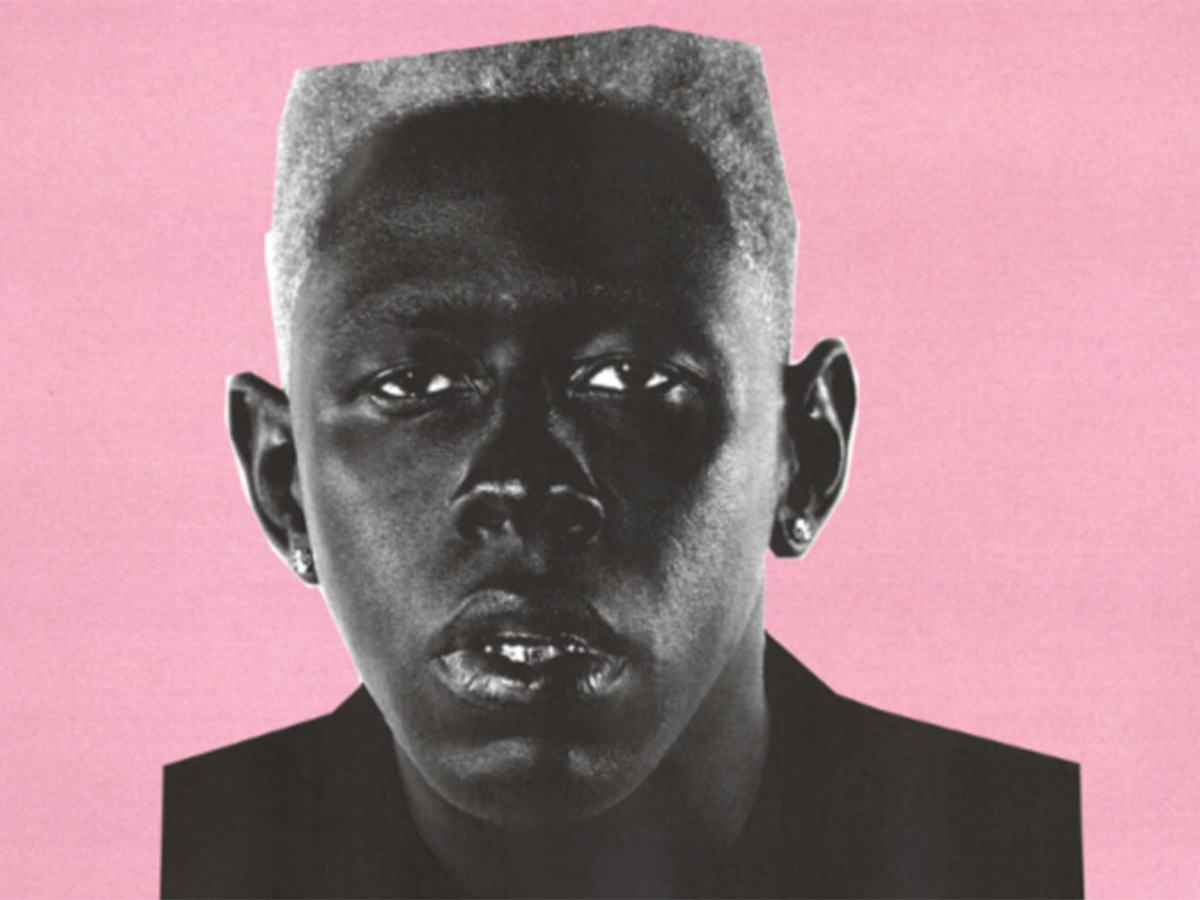Charlie Hall’s presence behind the kit for acclaimed rock band The War on Drugs is hard to miss. His new solo album ‘Invisible Ink’ opts for a more reflective approach, letting his creativity shine through in lush textures and a beautiful, entirely distinctive sonic canvas. Hall discussed the album’s genesis and his “Eureka” moment with Atwood Magazine.
Stream: ‘Invisible Ink’ – Charlie Hall
It’s not often that Charlie Hall seems to get down time these days, what with his main gig as the globetrotting, stylish drummer of The War on Drugs. Shows for the group’s acclaimed 2021 album I Don’t Live Here Anymore have been a thunderous, joyous experience across the past year and a half, and yet, Hall has still found time to drop a new solo LP – his first,Invisible Ink, released May 12th on El Triángulo Records.
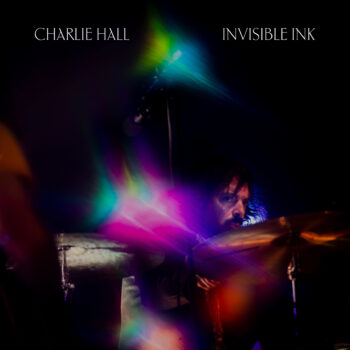
He’s the latest member of the Philly band to drop a solo record (bassist Dave Hartley released his own LP last year), and both releases drive home the point that the band is composed of some seriously talented guys. Hall’s own record is intensely cerebral, with lush, atmospheric texture throughout. It’s like stepping into a dream-like world, with songs you never want to end.
It took a while to take shape, though – it was Hall’s friend and El Triángulo label head Quinn Lamont Luke that gave the drummer the push needed to put songs to tape.
He received help aplenty along the way from contributors like Death Cab for Cutie’s Chris Walla, Hartley and Robbie Bennett of The War on Drugs, and Thomas Hedlund of Phoenix.
Not a bad group of friends and collaborators to have in your corner, right? Hall had been tinkering with tracks on his own, composing parts of songs like “Crockett’s Cove” in the woodlands of Maine on a family vacation.
Indeed, “Crockett’s Cove” sounds like weaving through a cool, sunlight-dappled forest, with enchanting adventures around every corner.
The years-long process included remote recording contributions in spades (Hedlund lives in Sweden, for instance), lending itself to a record packed with songs that sound carefully designed and yet not overwrought.
It’s an LP you can take your time with, one that offers more and more nuance and depth with each listen. It’s impressive, distinctive and memorable.
In a way, it reflects Hall’s own personal style and approach to creativity – Hall is drawn toward slightly more off-kilter styles, like the denim shirts he wears onstage with The War on Drugs. Classic but lived-in, just different enough from the norm, and uniquely Hall’s own.
Accordingly, Atwood Magazine caught up with Hall via telephone from Philadelphia, where he ruminated on the collaborative nature of this LP, his eye-catching wardrobe, touring with one of the world’s biggest rock bands and building his own sonic world.
:: stream/purchase Invisible Ink here ::
Stream: ‘Invisible Ink’ – Charlie Hall
A CONVERSATION WITH CHARLIE HALL
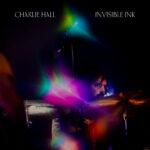
Atwood Magazine: What was the “Eureka” moment that led to you wanting to get a solo LP down properly?
Charlie Hall: I think the “Eureka” moment happened part of the way in. When I did the initial sessions and built up the first four tunes, that was cool – I just went in with no expectations. Honestly, it was like once some friends started to kind of like hear things, and filter it back through their lens, all of a sudden… it was a conversation.
It started as a very solitary exercise, which was cool because it was something I had never really done, but I think the real “Eureka” moment was when the collaborative aspect of things started to happen. That’s what I love about making music.
Obviously with The War on Drugs, you’re behind the drum kit. And when you’re sitting down to write your solo material, how is that process different and how do you approach that logistically?
Charlie Hall: It’s just sort of like, you find inspiration in different instruments. Pick up a guitar and play for awhile, and you put it in a tuning and it’s like, all of a sudden, you’re in that universe. Or you sit down at a Rhodes, like Quinn (Lamont Luke), he’s got this Rhodes he’s had forever, back when we were in San Francisco in the early aughts, so I remember that instrument… and the feel and the sound of the keys.
For me, it’s either the guitar or piano, but it depends on the day, and what road I’m trying to go down. I’ll usually start with a drum machine, or with one of those two instruments. There was somebody who was telling me they start writing with the bass – that’s something I’m interested in trying, to see how something unfolds with that instrument.
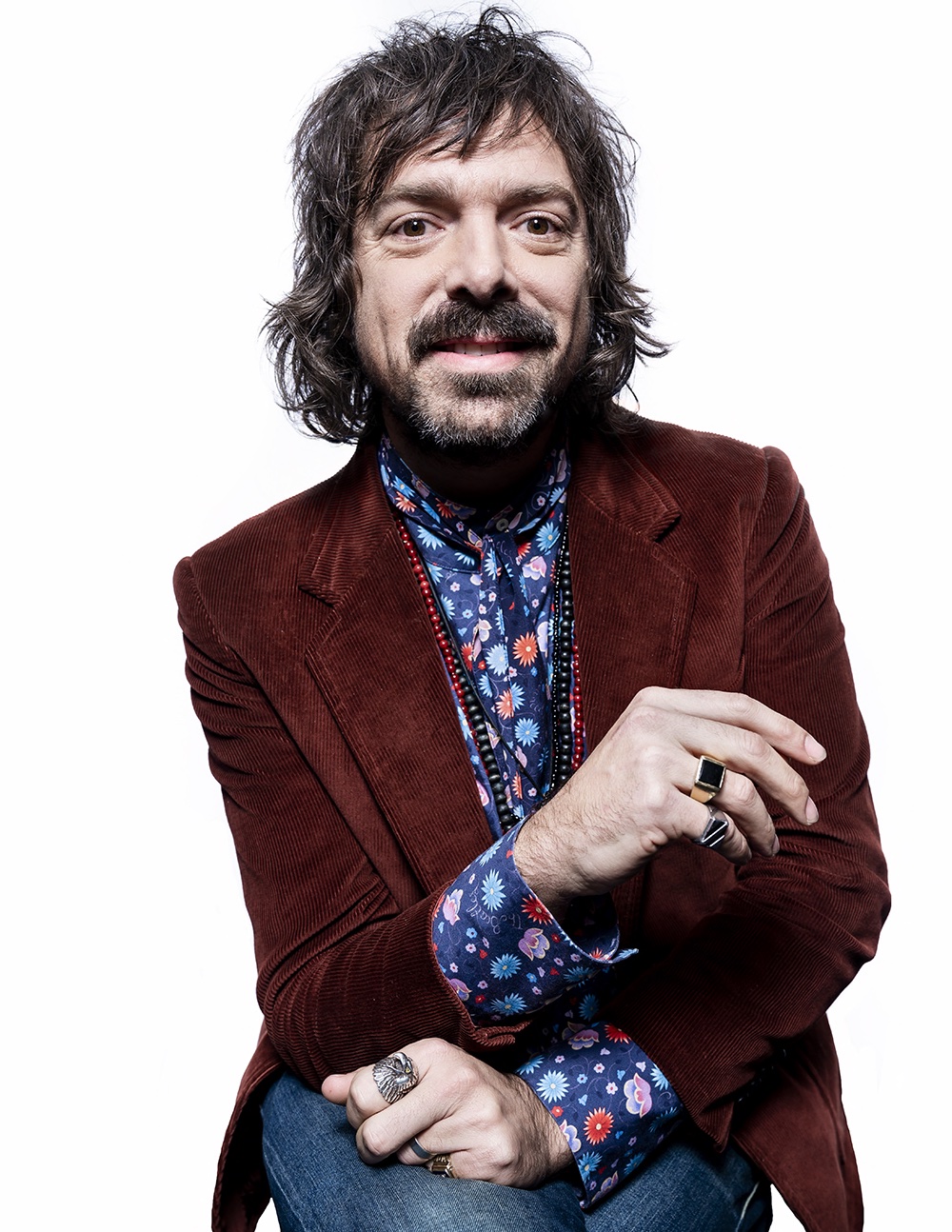
So, writing and recording a record is quite the process. I’m curious, when you are on tour with The War on Drugs, are you using any of your downtime, if you have any, to work on various parts of an LP?
Charlie Hall: Yeah, a little bit – on a day off. I think all of us are always kind of working. Usually, the only time on tour when I might kind of explore that (solo) stuff might be on a day off. I might bring whatever keyboard I have with me to kind of keep scratching away. I’d be lying if I said there wasn’t downtime, because there is lots of downtime, but you’re still moving around and traveling – it’s not always the ideal environment for writing.
It’s funny, I actually spoke with Dave Hartley last June about his solo record, and he was calling from a tour stop. So in terms of the band and yourself fitting in work wherever you can on other projects, do you ever find things the other band members are working on tend to influence your own work?
Charlie Hall: I think it’s more about, maybe, the sharing of listening. We’re not in the back lounge on the bus jamming so much as we’re listening to music together and sharing stuff. I think that’s kind of more how that might go.
And in that regard, I know the band brings a record player on the road along with your own vinyl.
Charlie Hall: We do, and it’s great for that very reason. You sort of amass this grip of records over six weeks around Europe or wherever, but there’s something very cool about, say, Dave coming back with a pile of records and we listen to them together. It’s fun to sort of sift through in real time and get to listen to something you’re excited about. We’re always introducing each other to new stuff because of it.
So speaking of listening to new music and finding inspiration, were there any artists or bands or sounds that influenced your own record significantly?
Charlie Hall: I didn’t have a certain template in mind. One of the really fun aspects of this has been, when I shared it with friends, everybody hears something different.
did truly go into this process with no set endgame in mind, stylistically. But when I reflect on the things that most certainly seeped in and inspired me in the process, I would say that in particular there were a handful of artists and records that have been constant companions over the past few years which I imagine certainly had something to do with it.
In particular Gaussian Curve (‘Clouds’), Cocteau Twins (‘Four Calendar Cafe’), Harold Budd (‘In The Mist’), Meshell Ndegeocello (‘Ventriloquism’), and all things Daniel Lanois (particularly ‘Belladonna’). Again, not to say that I was trying to emulate any of those things specifically, but those are all records that inspire me everyday.
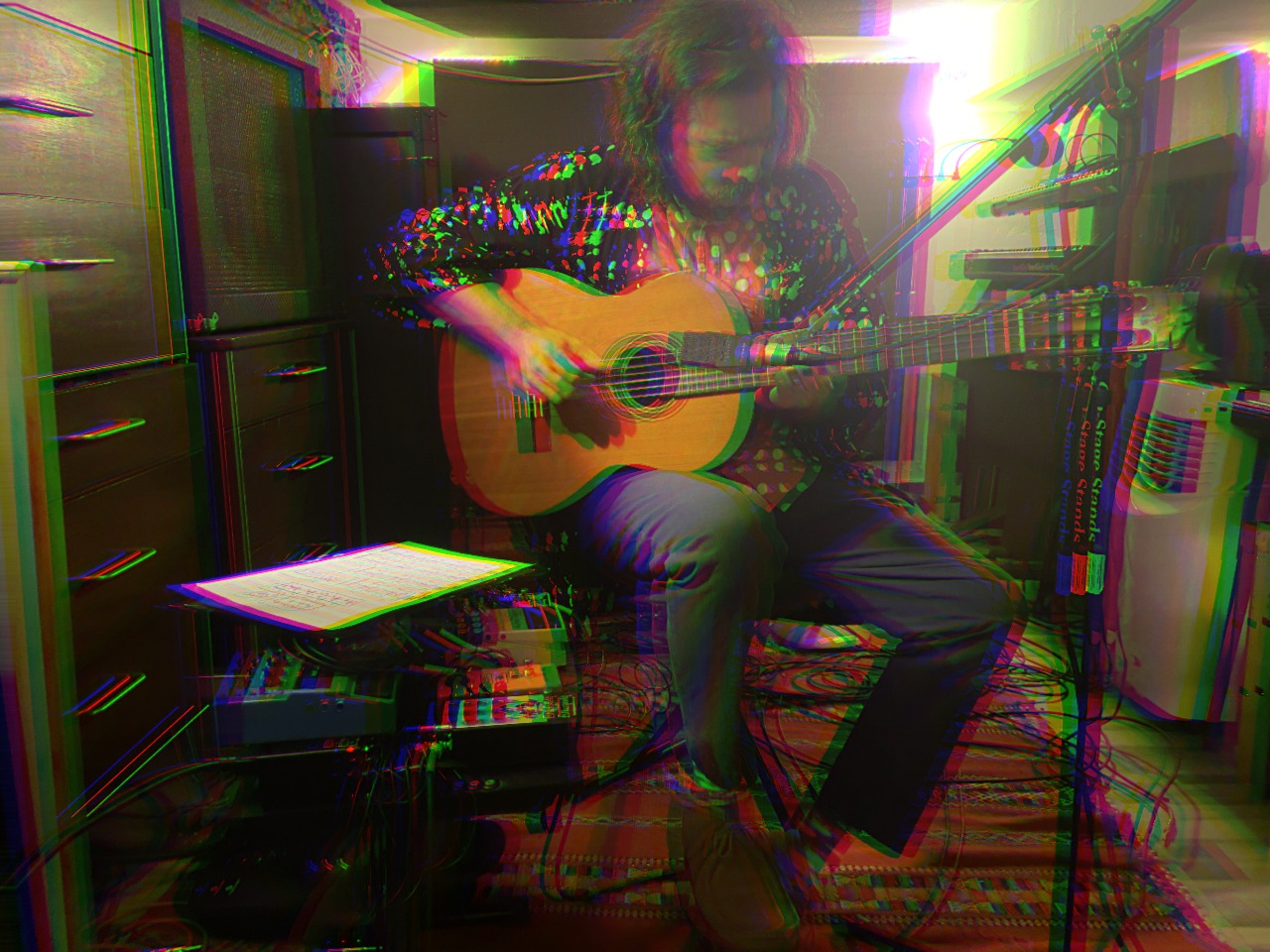
I’m particularly interested in the song “Crockett’s Cove,” which you started working on in Maine. In terms of a song like that, when you start working on that track somewhere else, what does the process look like in terms of finishing it?
Charlie Hall: That one I worked on for a while, and then… the thing that really turned it around was when my friend Thomas Hedlund was like, “Oh man, can I put some drums on that?” It had been that sort of half-time, Twin Peaks sort of thing, and then all of the sudden, it’s got this little wiggle and bounce from Thomas’ drums. This is totally better than what I had been scratching away at.
As you pass these tracks along, I assume that’s done digitally and remotely, as opposed to a studio space?
Charlie Hall: A bit of both, but with Chris Walla in Norway and Thomas in Sweden (for example), there was definitely some long-distance work. I love being in a room being with people, but there’s something kind of intimate in a way when someone is working in their home studio, in their special spot – there’s something kind of cool about that. There’s an intimacy I find in that process – you’re each in your own special spots.
In terms of the overall process, how long would it say it took you?
Charlie Hall: We started working on it before the pandemic – this isn’t like my pandemic record. It was like sort of a slow, very natural process. I think we must have started maybe in the fall of 2019.
Was there ever any point where you put some songs aside and walked away from them for awhile, so to speak?
Charlie Hall: All the time, all the time. Some songs are still on the shelf, where they belong (laughs). There was no pressure, and I didn’t necessarily plan on releasing it, until (El Triangulo’s Quinn) told me, “Are you out of your mind?”
And I said, “What? The beautiful part’s done.” (laughs). The whole exercise was a beautiful thing, and I was proud of it, and it was fun, but for me, releasing it was secondary. That wasn’t the thing that was driving me the entire time. … It was more like, I’m going to do this thing with my friends and I’m going to grow from it, and I’ll have this document to show for it. And now of course, it’s out, so there’s that (laughs).
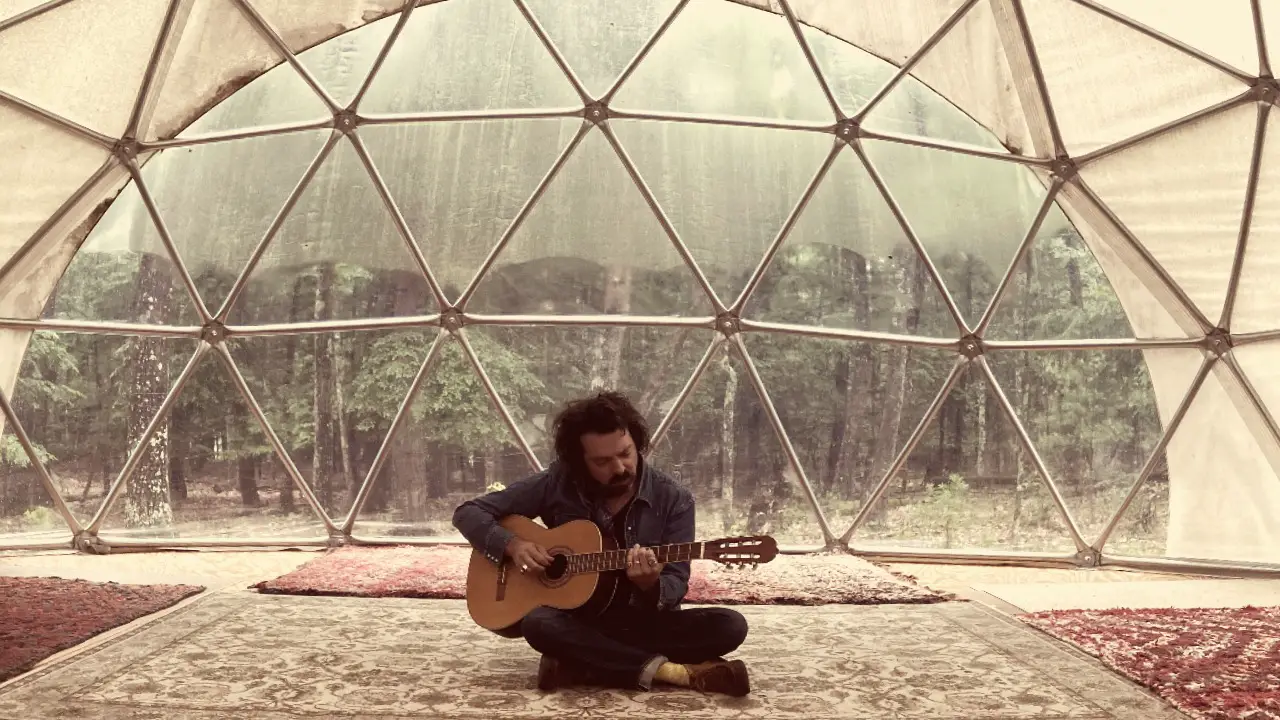
Tell me about the process of working with El Triangulo.
Charlie Hall: That’s Quinn, my friend who I’ve worked with over 20 years in different projects. We first got to know each other playing in Tommy Guerrero’s band. He’s the one that put me up to it. None of this would have happened without him. He said, “You’re coming to New York, you’re coming to the studio, I want to hear what you’ve been working on. I just want you to feel free to explore and see what happens.” I never would have done it if if weren’t from him. And also Dave (Hartley) has also sort of encouraged me in this way. But it was Quinn’s idea, really.
Have there been any concrete plans in terms of live shows?
Charlie Hall: I haven’t made a plan yet – things are about to get really busy with the band. I’ve got a few ideas for a live show. I never intended this to be a live project, but I’ve been off the road for a few months and playing with different people, different gigs and stuff like that. I’m actually starting to envision a world where I can explore some of these tunes in a sort of collaborative and sort of experimental way with some folks I’ve been playing with here.
When you think of the live experience, is there a sort of venue or capacity size you’d see these songs playing well in as of right now?
Charlie Hall: To be honest, that question hasn’t even occurred to me just quite yet…. It would just be cool to see what it’s like playing some of these tunes – I’m definitely interested in non-conventional venues. There are some cool spots in Philly, like the Woodlands Mansion, this place where my family and I go – there’s a cemetery there, with an old mansion, and it’s beautiful. I could imagine doing something inside a vibey spot like that.
I’d be more interested in trying to carve out something with some visual artists, and doing a more non-conventional thing, then doing something in a traditional rock club.
Let’s talk about the last song on the record, “Tamarama,” which you’ve said is your favorite track on the LP.
Charlie Hall: Yeah, it is – that one was almost sort of a post-script. It’s actually related to what we were talking about before, with “Where does a song start?” I just got a Stratocaster – my whole life I’ve always been a Telecaster and Jazzmaster guy, and I’ve just never really owned a Strat. And I got one, and that’s kind of where it landed.
I had that sort of piano thing, this piano sound I’ve been trying to develop, and then started to wriggle around on the Strat. It just felt right. … Frally (Hynes) did some sort of backwards singing and gorgeous textural stuff. It felt like the perfect way to end the record.
You mentioned there are some tracks that didn’t make the record. Are there other songs you could see fitting well on a future LP?
Charlie Hall: Yeah, I think so. As much as I didn’t set out to make a specific type of record, there are a few tunes where… I felt like they were a different mood. I’ll put that aside and come back to that if I’m coming to a sort of different vibe next time.
One thing I do want to touch on outside of music is your own sense of personal style, since it’s reflected onstage with The War on Drugs. It’s been neat for me to sort of see that from afar over the years. How would you define how you get dressed to go onstage, for instance?
Charlie Hall: This is a tough one (laughs). I’m not always the most practical dresser (laughs). . I love patterns, robes, polka dots, playing with patterns and mixing patterns. I will say that I have always enjoyed playing around with clothes.
In thinking back on it, we always had this giant chest (the “costume drawer”) in the house filled with generations of clothes that were deemed costume-worthy. I spent my childhood playing dress up, whether it was as KISS, Star Wars characters, or really just anything at all. I always loved putting together wild combinations of clothes.
And as the youngest of all my siblings and cousins, there was no shortage of hand-me-downs and I think my penchant for wearing things that might be perceived to be a little garish became just the way things were. I think personal fashion is a really fun form of personal expression.
— —
:: stream/purchase Invisible Ink here ::
— — — —

Connect to Charlie Hall on Instagram
Discover new music on Atwood Magazine
© Lloyd Bishop
:: Stream Charlie Hall ::

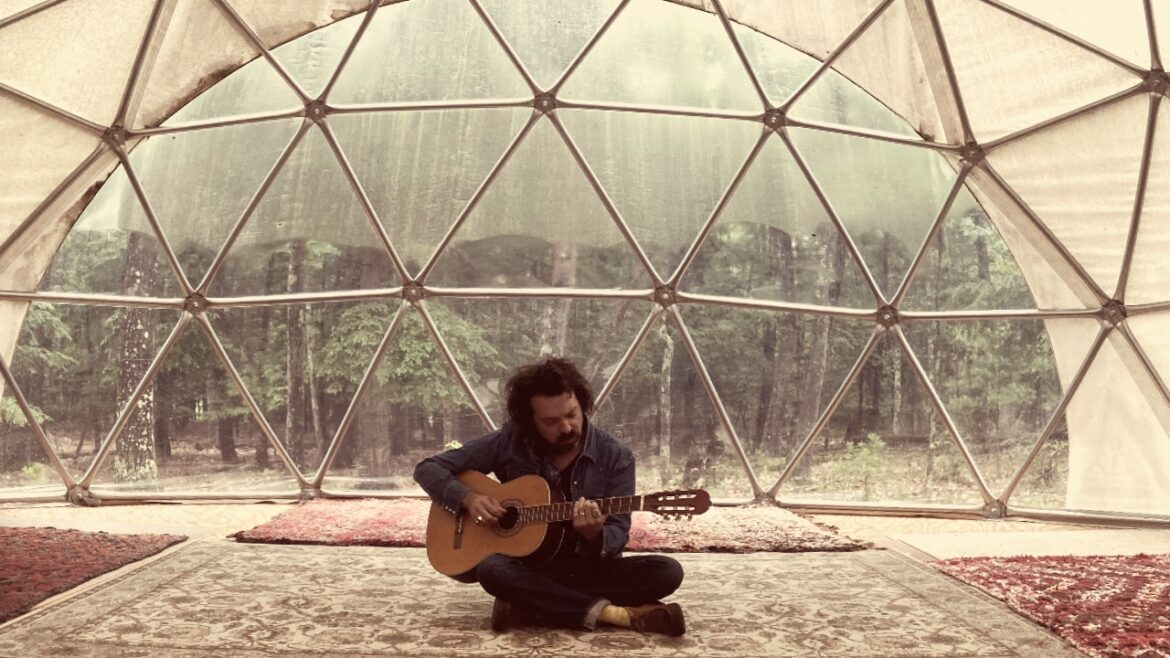
 © Lloyd Bishop
© Lloyd Bishop
